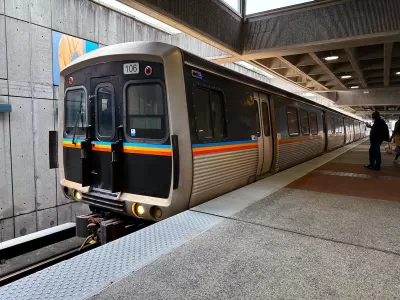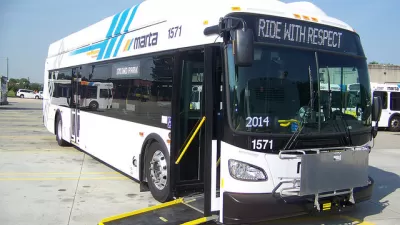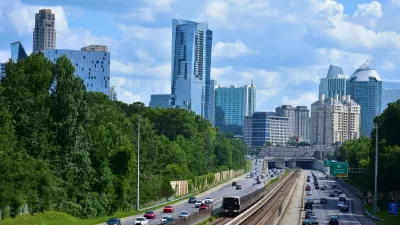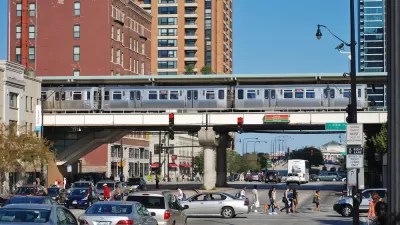The city is set to host multiple major sporting events in the next several years, prompting calls for expanded transit service on weekends and to popular areas.

Atlanta transit advocates are calling on the Metropolitan Atlanta Rapid Transit Authority (MARTA) to restore consistent and frequent weekend service, arguing that cuts to weekend transit are having a detrimental impact on cultural events and the local economy. The city is hosting major sporting events in the coming years, which will require the agency to move hundreds of thousands of attendees.
According to an article by Alex Ip, “An investigation by The Xylom shows that tracking-related service cuts have slowed down the frequency of trains on the north-south route for almost 80% of weekends since October 2023, according to our weekend service cancellation dashboard created using publicly available data from MARTA.”
The agency took almost 5,500 weekend trains out of service last year, Ip adds. “Since the pandemic began, MARTA has ramped up single-tracking — which means it runs trains on one track instead of the usual two — and has experienced operator shortages, all of which disrupt rail service and necessitate ‘special schedules.’” This has amounted to long wait times and packed trains during major weekend events, concerts, and to and from Atlanta’s international airport.
Atlanta City Council President Doug Shipman said MARTA should consider expanding services to accommodate the anticipated spike in ridership. “While building out new rail transit infrastructure will take time, restoring consistent weekend service is low-hanging fruit for MARTA to bring back more riders.”
FULL STORY: Weekend Transit Cuts Are Crippling Atlanta’s Cultural Events. Will MARTA Answer the Wake-Up Call?

Trump Administration Could Effectively End Housing Voucher Program
Federal officials are eyeing major cuts to the Section 8 program that helps millions of low-income households pay rent.

Planetizen Federal Action Tracker
A weekly monitor of how Trump’s orders and actions are impacting planners and planning in America.

Ken Jennings Launches Transit Web Series
The Jeopardy champ wants you to ride public transit.

Crime Continues to Drop on Philly, San Francisco Transit Systems
SEPTA and BART both saw significant declines in violent crime in the first quarter of 2025.

How South LA Green Spaces Power Community Health and Hope
Green spaces like South L.A. Wetlands Park are helping South Los Angeles residents promote healthy lifestyles, build community, and advocate for improvements that reflect local needs in historically underserved neighborhoods.

Sacramento Plans ‘Quick-Build’ Road Safety Projects
The city wants to accelerate small-scale safety improvements that use low-cost equipment to make an impact at dangerous intersections.
Urban Design for Planners 1: Software Tools
This six-course series explores essential urban design concepts using open source software and equips planners with the tools they need to participate fully in the urban design process.
Planning for Universal Design
Learn the tools for implementing Universal Design in planning regulations.
Heyer Gruel & Associates PA
Ada County Highway District
Institute for Housing and Urban Development Studies (IHS)
City of Grandview
Harvard GSD Executive Education
Toledo-Lucas County Plan Commissions
Salt Lake City
NYU Wagner Graduate School of Public Service





























